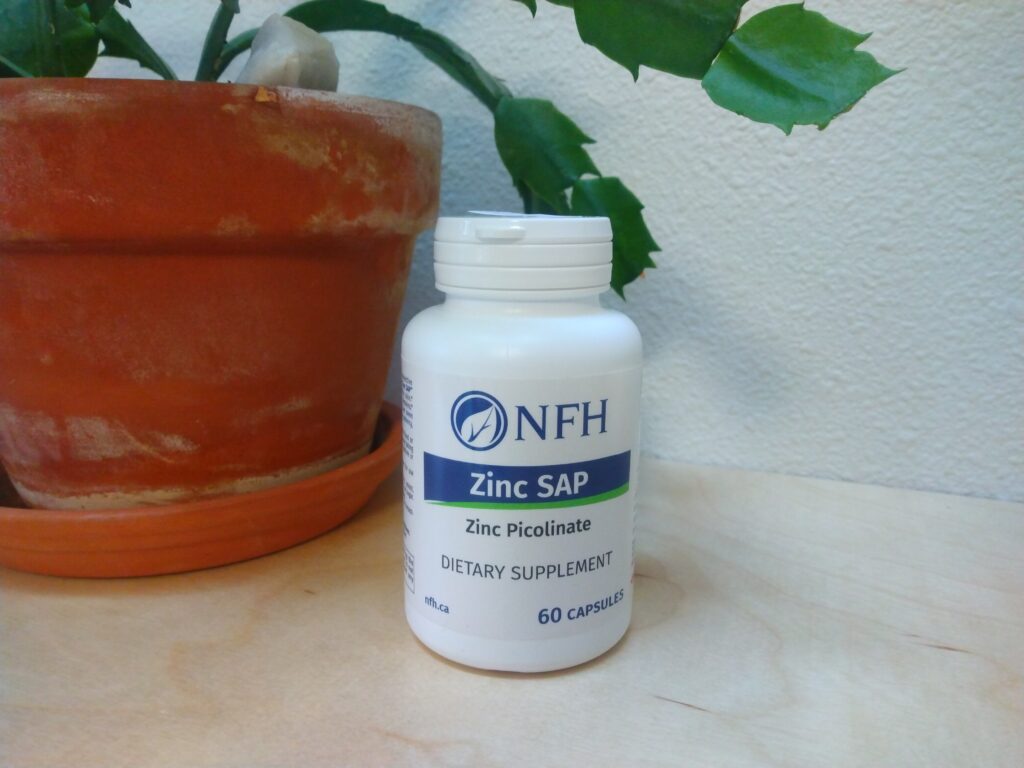One of the self-care habits many of our patients started during the COVID-19 pandemic was taking zinc as a daily supplement. Zinc is very important for immune function. Some of our patients have continued with this additional support for their immune system.
Let’s learn about zinc.
Zinc is essential for general growth, as well as vision, hearing, taste sensation, sexual development and wound healing. It is also an antioxidant, zinc stabilizes mast cells, and has anti-inflammatory and anti-viral effects. This is why we recommend it so strongly to help fight COVID-19.
Why should you supplement with zinc?
There are many reasons why you might need more zinc than what you can get from your diet or a multi-vitamin. The main reasons include chronic illness or low stomach acid (something that can be acquired, inherited, or a result of taking acid blocking medications).
Which zinc should you take?
Zinc picolinate or zinc citrate are much better absorbed in general than the zinc sulfate.
How much zinc should you take?
A dosage of 10-20 mg of zinc picolinate or citrate is sufficient to prevent deficiency in most people. A common recommendation for fighting an acute or chronic illness is to take a dose of 25-30 mg of zinc 1-2 times day for 2-3 months.
What about copper?
Copper is an important mineral that helps your body make red blood cells, and keeps nerve cells and your immune system healthy. Copper also helps form collagen, a key part of bones and connective tissue.
Why might you need to supplement with copper?
When you take higher doses of zincfor more than 2-3 months, it can deplete copper levels in your body. If you are taking zinc as a separate supplement we recommend 1 mg of copper for every 10 mg of zinc. There are many combination formulas out there, and we carry one at Natura. Most multi-vitamin and mineral combinations include zinc and copper in this ratio.
How else can you get copper?
Copper is found naturally in some foods including beef liver, beans, cashews, brazil nuts, and sunflower seeds. We often recommend 2-3 brazil nuts a day to get 2-3 mg of copper.
The next time you purchase a zinc supplement, we recommend getting one that includes copper.If you are looking for a good online source with detailed information about a whole range of nutrients, I recommend the Linus Pauling Institute.
